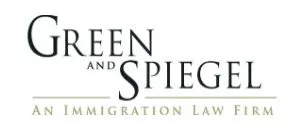Good news for prospective investors with older children: earlier this month, a long-awaited amendment to Canada's Immigration and Refugee Protection Regulations was released. Starting October 24, 2017, an individual under the age of 22 will be considered a "dependent child." The increase from under 19 years of age to under 22 years of age acknowledges the trend that children are living with their parents for longer than they previously did, often to pursue higher education. The change in definition will allow families to be united in Canada more easily since dependent children may be included in their parents' application for permanent residency. In such circumstances, a separate family class sponsorship application is not required for dependent children.
The new definition of "dependent child" will only apply to permanent residency applications submitted on or after October 24, 2017. It is important to note that IRCC has stated that this change will not be retroactive. Having said this, there may be limited instances where children may still qualify for dependent status if they were detrimentally affected during the period of time (August 1, 2014 to October 24, 2017) when a dependent child was defined as someone younger than 19 years of age. Since 2014, dependent children's ages have been eligible to be "locked in" starting with the first formal step of the immigration process, such as a parent's application filing with a Provincial Nominee Program.
In the United States, by comparison, dependent children may qualify for derivative Green Cards provided that children are under the age of 21 and unmarried. However, the Child Status Protection Act may enable investors to "freeze" their children's ages during long petition processing times.
For more information as to you or your dependents qualify for investor-based immigration, contact us today.
The content of this article is intended to provide a general guide to the subject matter. Specialist advice should be sought about your specific circumstances.

